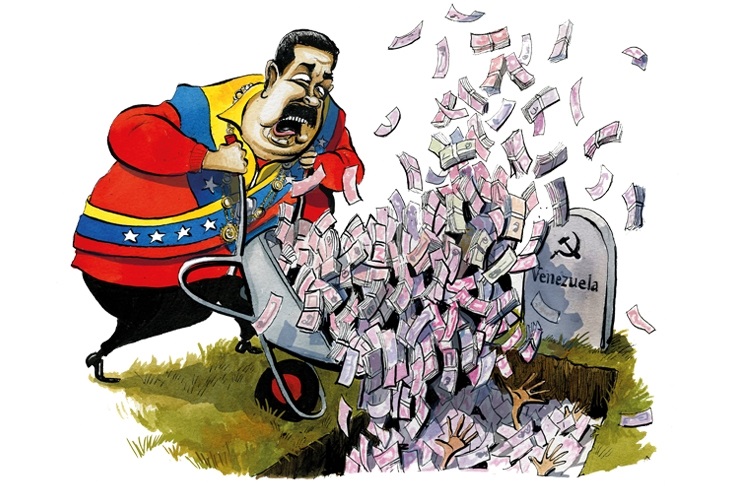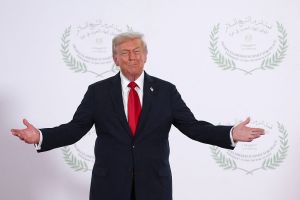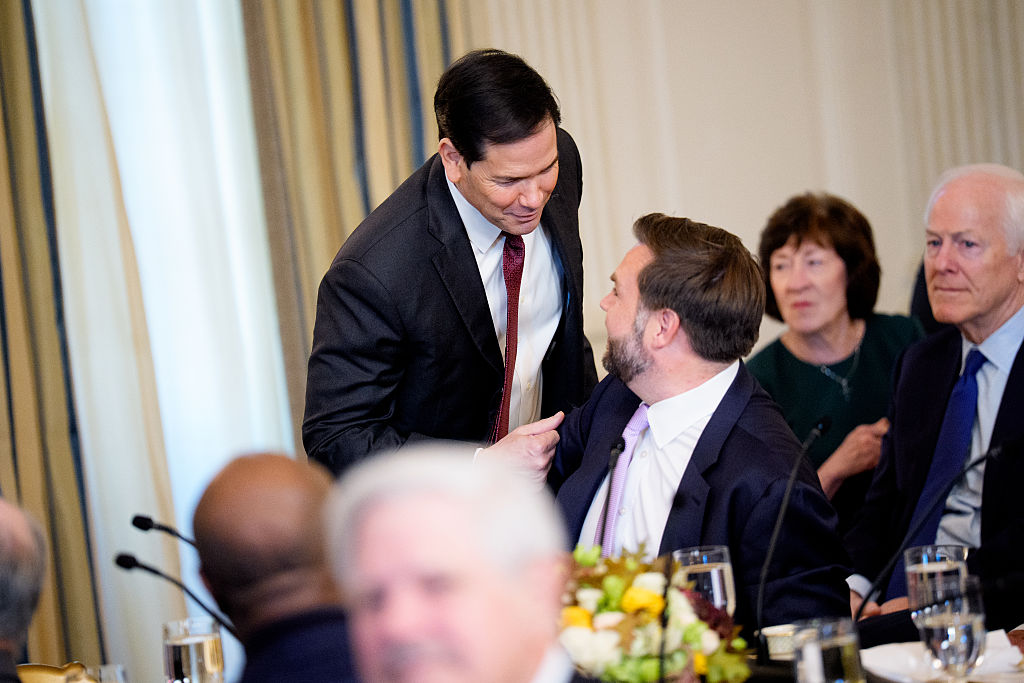Venezuela has become a headache for Washington. Just after the Biden administration engineered a rapprochement strategy, Nicolás Maduro did more than just double down on not following through his promises of democratization: he is now pushing to annex neighboring Guyana. These developments, though, should have been anticipated, as Venezuela becomes a crucial part of China’s geopolitical strategy.
“Ready for what will be a historic visit to strengthen ties of cooperation and the construction of a new global geopolitics. Good news will rain for the Venezuelan people,” said Maduro after landing in the Chinese city of Shenzhen back in September. Five years after his last visit, Maduro had returned to China precisely when global leaders gathered in India for the G20 Summit — which Xi Jinping skipped. During the week-long visit, the leaders produced a joint statement, announcing that the Sino-Venezuelan relationship would now be an “all-weather strategic partnership.” That category is one reserved for the Chinese Communist Party’s most important partners — and Venezuela is the first Latin American country to reach the level.
Months before the visit, as Chinese diplomats met with Venezuelan officials in Caracas, journalists suggested that the two were re-establishing their relationship “after years of cooling ties, with government contacts resuming.” What was happening then, and is happening now, is the continuation of Xi’s geopolitical strategy.
“The Maduro regime features a heavy dose of rhetoric on a multipolar order, support for groupings like the BRICS (now BRICS+) and a sharp criticism of US foreign policy,” says Ryan C. Berg, the director of the Americas Program and head of the Future of Venezuela Initiative at the Center for Strategic and International Studies. “To the extent that the Maduro regime’s domestic rhetoric and foreign policy choices align with Chinese objectives of challenging the US-led international order and threatening stability in the US’s shared neighborhood, Maduro and Venezuela are useful to China.”
The South American country has become synonymous with oil, migrants and communism for most, but it is much more than that. Venezuela possesses a trillion-dollars-worth of critical minerals that will become more essential as the world enters a new industrial revolution. According to Maduro’s 2019 mining plan, “gold would reach the international legal certification of 2,236 tons, (about $100 billion), making the country the fifth largest reserve in the world and aspiring to first place.” Likewise with minerals like bauxite, the Venezuelan leader says that he has 321,350,000 thousand tons in certified reserves, and in terms of nickel, he boasts 28,027,980 certified tons — making Venezuela the country with the largest reserves in the planet.
“Venezuela’s vast and diverse mineral wealth is certainly of interest to China,” says Berg. “Given the latter has made massive investments in Venezuela — and seeks to recoup its investment of over $60 billion in lending, of which as much as a third could still be outstanding — minerals and extractive industries beyond oil could be an attractive form of repayment of outstanding debt, in addition to helping China maintain its advantages in the mining and refining of minerals.”
“Venezuela is the country in the western hemisphere with the most Chinese investment,” explains Gerardo Berthin, the former director of the Latin America and Caribbean programs at Freedom House. Estimates put forward by civil society organizations indicate that 490 signed agreements in “diverse areas of investment” were made between the two countries from 2007 to 2022,
When it comes to national security, the country’s location is also relevant, as it sits at the northern end of South America, almost as close to the US as Japan is to China. Around 600 hundred sparsely populated islands and smaller formations, “federal dependencies” in the Caribbean, are Venezuelan territory. Of these islands, there is one just miles away from Caracas, La Orchila, where Russia announced plans to set up its first ever military base in 2018, deploying Tu-160 strategic aircraft to the island. This makes it Russia’s largest presence in the Caribbean since the Cuban Missile Crisis more than sixty years ago.
Joseph Humire, the executive director of the Center for a Secure and Free Society, argues that China could not only do the same in the next years, but Russia and China have significant combined interests in the region — and both cooperate in Venezuela more than almost in any other country. “Not just through Cuba and Venezuela, but also with the help of Russia and Iran, China has shaped Latin American institutionality greatly. The increasing asymmetric warfare we observe in the continent, for instance, does not purely originate from domestic conditions.” In fact, Humire suggests, “it is the presence of the Sino-Russo-Iranian alliance in the continent, especially in countries like Venezuela, what has exacerbated the anti-Americanism observed in the last decade. As such, any meaningful analysis of Venezuela needs to look at the influence of China and its region-destabilizing partners. The moment we start thinking more about Venezuela like we think about these three will be the moment our policy changes for the better.”
Along with Venezuela and its islands, other countries are moving closer to China, such as Cuba, their closest ally, plenty of other Caribbean states such as Dominican Republic, and adjacent countries like Colombia.
What has occurred in the US’s neighborhood may not look like an “invasion,” but it wouldn’t be inaccurate to think of it as a takeover. China has overtaken the US as the main trading partner of Brazil, Argentina, Peru and many others. Yet the trend goes beyond economics, as regional actors increasingly antagonize the US, shrieking about imperialistic pretensions, as China becomes the new empire. As countries become economically reliant on China, the CCP increases its hold on their decision-making processes.
With Caracas and Havana, Beijing has pushed the region away from the United States in ways that the Soviet Union never could — although this is primarily because the US understood that one’s absence means another’s presence.
Just after Maduro left China, leaders headed to the G77+China summit in Cuba from where China, accompanied by several Latin American leaders, issued their condemnations of US hegemony.
It is no exaggeration to call Venezuela one of China’s greatest assets in the Americas; for those who understand this, it comes as no surprise when the oil-rich county makes things hard for Washington. If the US fails to reintroduce a positive-visioned Latin America strategy, especially vis-à-vis Venezuela, China’s grasp over the region will become stronger. And as this trend continues, it only makes sense for Xi to use those strong relations as leverage when dealing with the US.


























Leave a Reply